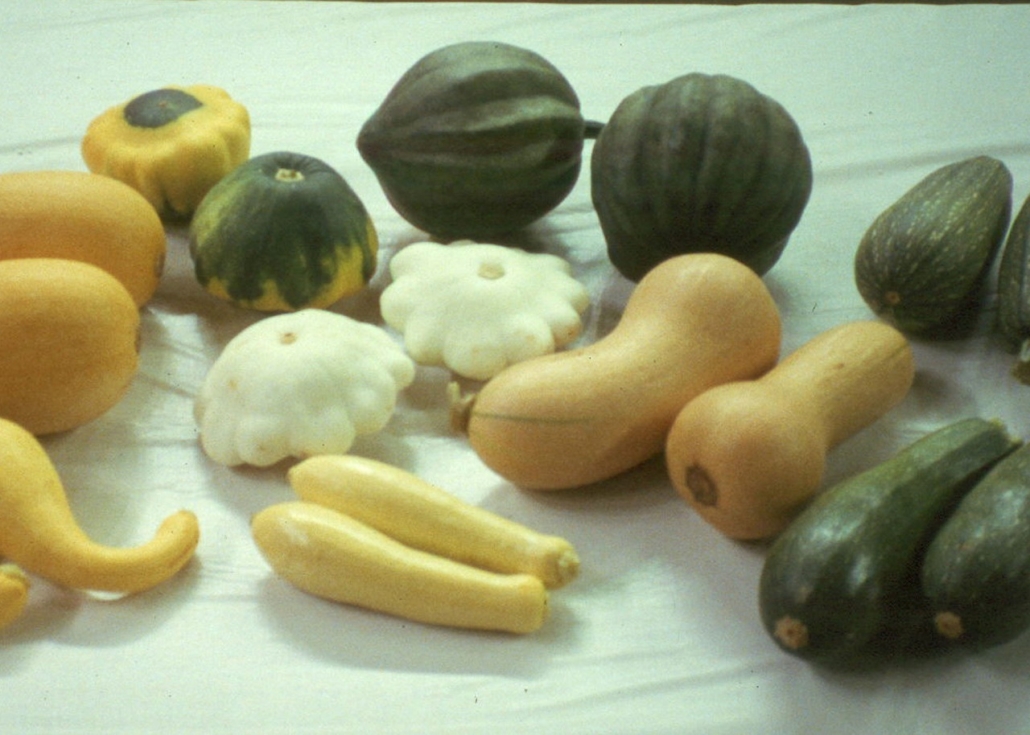GARDEN WORKS: Toxic squash, evil zucchini and other dangers in the garden

 by Emily Cates
by Emily Cates
Watch out for that squash! No, I’m not talking about the oversized zucchini endangering anyone who walks under it — or the health hazards of eating undercooked portions of Aunt Maybelle’s Squash Surprise Soup. I mean a real hazard that could lurk in any member of the Curcubit family — toxins known as curcubitacins. Let’s take a look at this widely unknown danger and arm ourselves with the knowledge of how to protect ourselves from it.
As the harvest season is well underway, many of us are now harvesting copious quantities of curcubits like cucumbers, squash, melons, and other delights. Along with the harvest comes tasty recipes guaranteed to please and nourish the body and soul. But let me ask, have you ever taken a bite of a cucumber, or cooked up squash or zucchini—and found it incredibly bitter?
Well, you should know that this bitterness is bad news! Not only is it an indicator that the fruit or veggie has dangerous amounts of curcubitacins, but just a mouthful eaten can make you very sick. Like wind up in the hospital sick, and maybe even lose all of your hair if you survive. At the very least, you’ll get terrible digestive problems on both ends. Who wants that? Not I!
Definitely enough to make one think twice before eating, Toxic Squash Syndrome (not to be confused with Toxic Shock Syndrome) is not something anyone wants to have. Though rare, this illness is potentially fatal, and is a serious risk for the unwary.
How can this be, since these vegetables are a regular, delicious part of a healthy diet? Well, let’s take a look at why it can happen.
First of all, these toxins are naturally occurring repellents. Bitter and poisonous Curcubits are often found growing wild in tropical areas. The toxins, however, have been bred out of cultivated varieties, especially those that are available in seed catalogs. If the professional grower did their job, the resulting seeds offered should be pure, not crossed with other varieties.
I find that mostly to be the case when I grow seeds from seed companies. The seeds grow as advertised and expected, though I do observe fruits from crossed seeds from time to time. If these fruits from crossed seeds were not crossed with ornamental gourds and taste good— not bitter at all— then they probably are not poisonous. But please don’t take my word for it! If in doubt, throw it out. Or use it ornamentally. And don’t save the seeds.
If you are a seed-saver, please ensure your Curcubit plants do not cross with other plants, such as certain squashes cross pollinating with ornamental gourds. The book Seed to Seed, by Suzanne Ashworth, is a good place to start if you have questions about what crosses with what— especially with squash.
Another reason why a plant could produce curcubitacins is because it is stressed. Ensuring favorable growing conditions is a good idea for these plants. Lack of water and/or nutrients, and pest pressure are all stressors that could promote the production of curcubitacins. In this case, your sense of taste is your best defense. If it’s bitter, it’s a spitter!
So, now that we have been forewarned about the dangers lurking in the pumpkin patch, we can rest assured knowing that other than some things to keep in mind, the garden surely is a place of complete delight.
Responsible journalism is hard work!
It is also expensive!
If you enjoy reading The Town Line and the good news we bring you each week, would you consider a donation to help us continue the work we’re doing?
The Town Line is a 501(c)(3) nonprofit private foundation, and all donations are tax deductible under the Internal Revenue Service code.
To help, please visit our online donation page or mail a check payable to The Town Line, PO Box 89, South China, ME 04358. Your contribution is appreciated!


Leave a Reply
Want to join the discussion?Feel free to contribute!